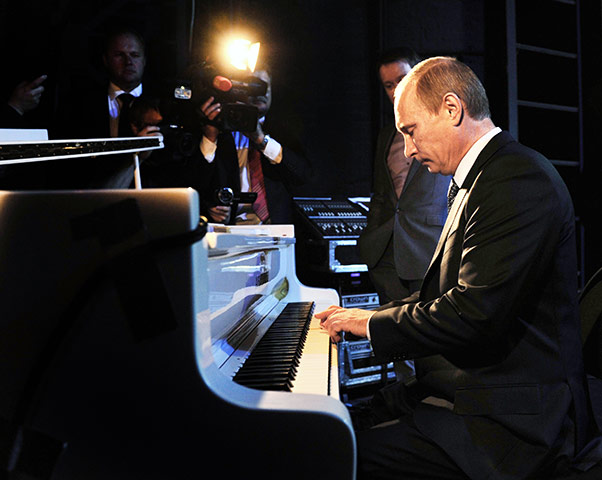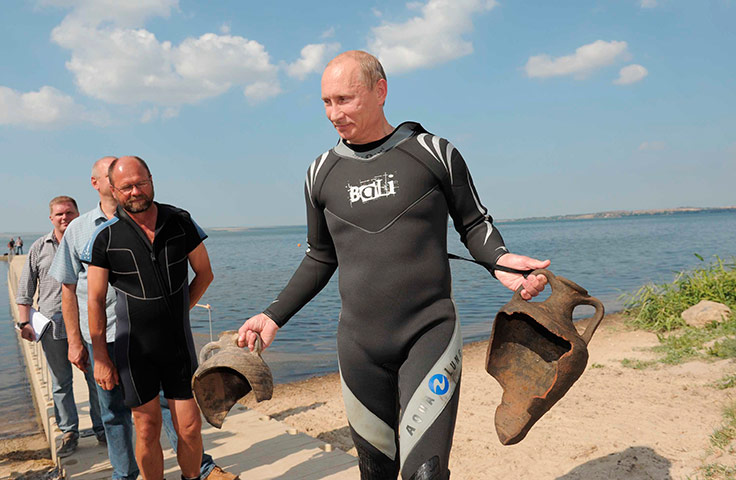spot on Scott. Although an economic weakling, militarily they are a super power.
http://www.ploughshares.org/world-nuclear-stockpile-report
"back off, I have nukes!
lol, head back to the gym Putin 
his sphere of influence, increasing buddiness with China is disturbing. Their fondness for him is nutty . Neat for him knowing, seemingly, the economic giant has got his back. He ain't backing down to USA....nope.
When U.S. Chairman of the Joint Chiefs of Staff Martin E. Dempsey
aired his concern that Russian President Vladimir Putin’s Ukraine gambit might spark nationalistic unrest that spreads to other regions, he clearly didn’t have China in mind. Nevertheless, it is in the Middle Kingdom where a patriotic public infatuated with Putin may force their own government to take a harder line against the West. According to annual surveys held between 2008 and 2014 by
InTouch Today, a regular column of China’s mass media giant Tencent, Putin has consistently maintained an over 90 percent approval rating among the Chinese populace. The
column cites Chinese propaganda as partly responsible for playing up Putin’s charm. Besides praising his macho physique, one observer quoted by
InTouch Today says that Chinese media coverage portrays Putin as everything from a judo master to a fighter jet pilot. Mainland netizens have adorned the Russian leader with the title “Putin the Great.” Clearly the PRC’s nationalist masses have a soft spot for Russia’s leader.
But it is in Chinese foreign policy circles where observers should be most worried about Beijing’s portrayal of Putin and the admiration he receives. Government-affiliated academics have notably praised Russia’s leader for his willingness to challenge the West head-on across a wide range of issues. Inside the first cover story of the year in
Global People, a magazine run by the Chinese Communist Party (CCP) mouthpiece
People’s Daily, Chinese Academy of Social Sciences (CASS) researcher Wu Wei praised Putin for usurping America’s traditional role as the defender of democracy by welcoming NSA defector
Edward Snowden into the open arms of Russia’s intelligence service. It is worth noting that
CASS is directly subordinate to the PRC’s State Council.
Putin has admirers at other major Chinese think tanks as well. Liu Guiling, an analyst at the Ministry of State Security’s
China Institutes of Contemporary International Relations (CICIR), writes that Putin has earned his constituents’ support through the pursuit of Russia’s own “
Great Power Dream.” Liu asserts this “dream” includes advancing Russia’s national rejuvenation, creating a stronger military, and standing up to foreign interference — themes reminiscent of President Xi Jinping’s own “
China Dream.” Likewise, deputy director of CICIR’s Institute of World Political Studies Chen Xiangyang describes Putin’s foreign policies in the context of a “new international situation” and an increasingly multi-polar world. Chen
argues that in 2013, Putin’s pressure on Obama over Syria’s civil war and the Iran nuclear issue helped further Moscow’s interests at America’s expense. Chen went so far as to call Putin an “international strategy chess master” for his defense of Russian strategic interests in this year’s
Ukraine crisis.
In their admiration of Putin, some Chinese analysts see a blueprint for more assertive Chinese foreign policy. Guo Jinyue from the Ministry of Foreign Affairs’ China Institute of International Studies (CIIS) writes that in comparison with Beijing’s own relatively “mild and moderated” tactics for managing western interference, Putin’s unyielding stance has raised the spirits of China’s
hawk faction. Given that CASS, CICIR, and CIIS are all government think tanks affiliated with different organs of state power, these views likely represent a broad segment of the CCP’s own thinking regarding their northern neighbor’s strongman.
Even so, mainland international affairs experts understand Beijing’s need to balance a strong posture via Washington and a working relationship with the West. China’s hyper-nationalist netizens, on the other hand, may not. Wang Yuanfeng, a deputy minister of the United Front minority party
the Jiu San Society,
writes that China’s legacy of national humiliation and the nearly perfect image Putin has in Chinese media have helped foster Putin’s fledgling cult of personality. In his view, the Chinese people’s dissatisfaction with Beijing’s “peaceful development” strategy comes from their wish to see a more aggressive international stance commensurate with China’s growing comprehensive national power. Pretending to represent the demands of China’s masses, Wang rhetorically asks: “Why can’t China reclaim the Diaoyu Islands like Russia reclaimed Crimea? Why can’t China use weapons to teach the Philippines and Vietnam a lesson?” These questions have complex answers that are unlikely to satisfy the PRC’s online war hawks.
Previously mentioned CIIS analyst Guo Jinyue insightfully diagnoses deeper reasons for Putin’s popularity among Chinese masses and elites alike. Guo believes that, even though Russia and China were once ideological enemies that even met in battle, common Marxist roots and a historical fraternal alliance still form a foundation for today’s amicable relations. As Russia and China cooperate with one another on a range of international issues, Guo states that the Chinese media responds in kind with favorable reporting on Russia’s leader.
What’s even more intriguing, Guo
asserts that Putin’s personal character satisfies a certain “psychological need” of the Chinese people. In contrast to CCP leaders’ generally “solemn and firm” appearance, Guo claims Putin leaves Chinese with a “brave and energetic” impression. He goes on to say that Putin’s tough-guy image also fits nicely with China’s traditional desire for a powerful leader. In his final summary, Guo concludes that the Chinese people find within Vladimir Putin qualities that their own leaders lack or rarely express.
If the above-mentioned Chinese observers are even partially correct in their analyses, the implications for the CCP regime are serious. State media naturally benefits from playing into the populist desires of the public, and the leadership itself may benefit from demonstrating that China has strong friends, not just weak allies like North Korea. However, Beijing must be careful not to overplay the “Putin” card. It is worth recognizing that the populists in the Chinese blogosphere are also represented within the Party itself. In his book
China Goes Global, David Shambaugh dubs this group the “Nativists,” staunch advocates of international autonomy and vehement critics of the West. Beijing must recognize that as it exalts Russia’s strongman as an ally against the West, it may also inadvertently sanction support for an alternative, uncompromising Chinese foreign policy.
Such support may manifest at the least-expected time. As Jessica Chen Weiss shows in her recent book,
Powerful Patriots, the CCP actively uses nationalist outrage as a tool to improve diplomatic negotiating leverage. Nevertheless, the Party is far from mastering it completely. The anti-Japanese protests of October 2010 provided a potent example of
government-sanctioned nationalism gone awry, as some protest banners strayed from pre-approved Senkaku dispute slogans to calls for multiparty politics. If future anti-foreign protests evolve into demands for aggressive action over some perceived wrongdoing by the West, emboldened hardline elements in the Party might also call on Xi Jinping to handle business “Putin-style.” But a bolder stance against America and the West is not desirable for China. Xi’s push for a “
new model of major country relationship is proof enough of his judgment that a Putin-esque confrontation with Washington is not in China’s interests.
For now, China’s infatuation with Putin seems relatively benign. Nevertheless, Chinese leaders should recognize the risk of Putin’s example becoming yet another hyper-nationalist foreign policy constraint. Western observers would also do well to monitor both the coverage Putin gets in mainland China and the admiration he receives. It may provide a valuable clue to what Chinese decision makers and their constituency alike expect in China’s foreign affairs.
http://thediplomat.com/2014/08/why-chinas-love-for-putin-is-dangerous/
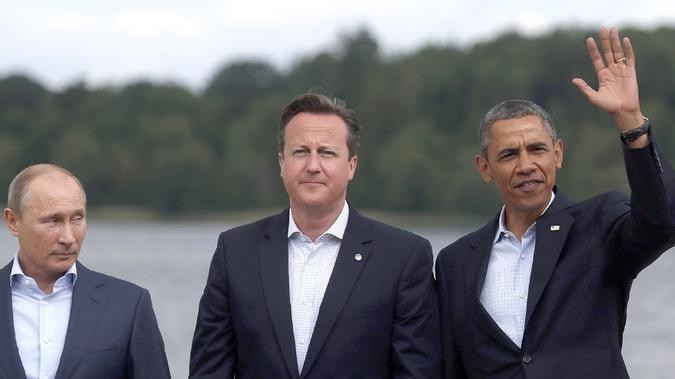

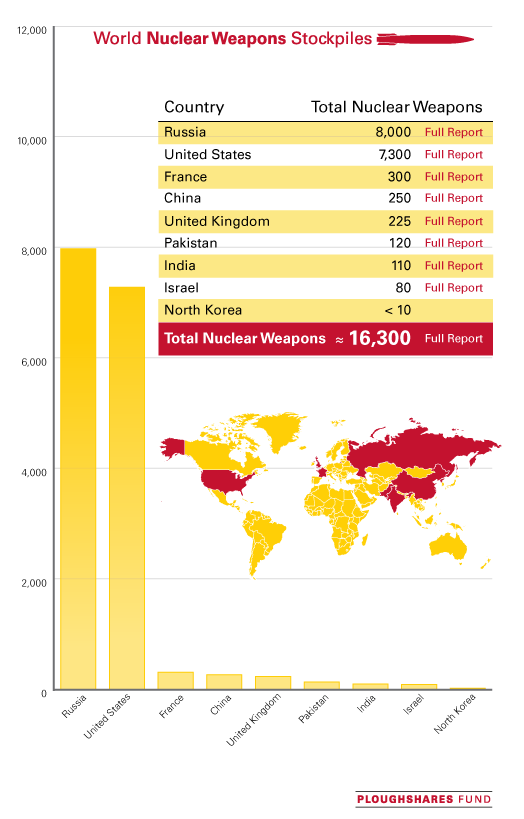

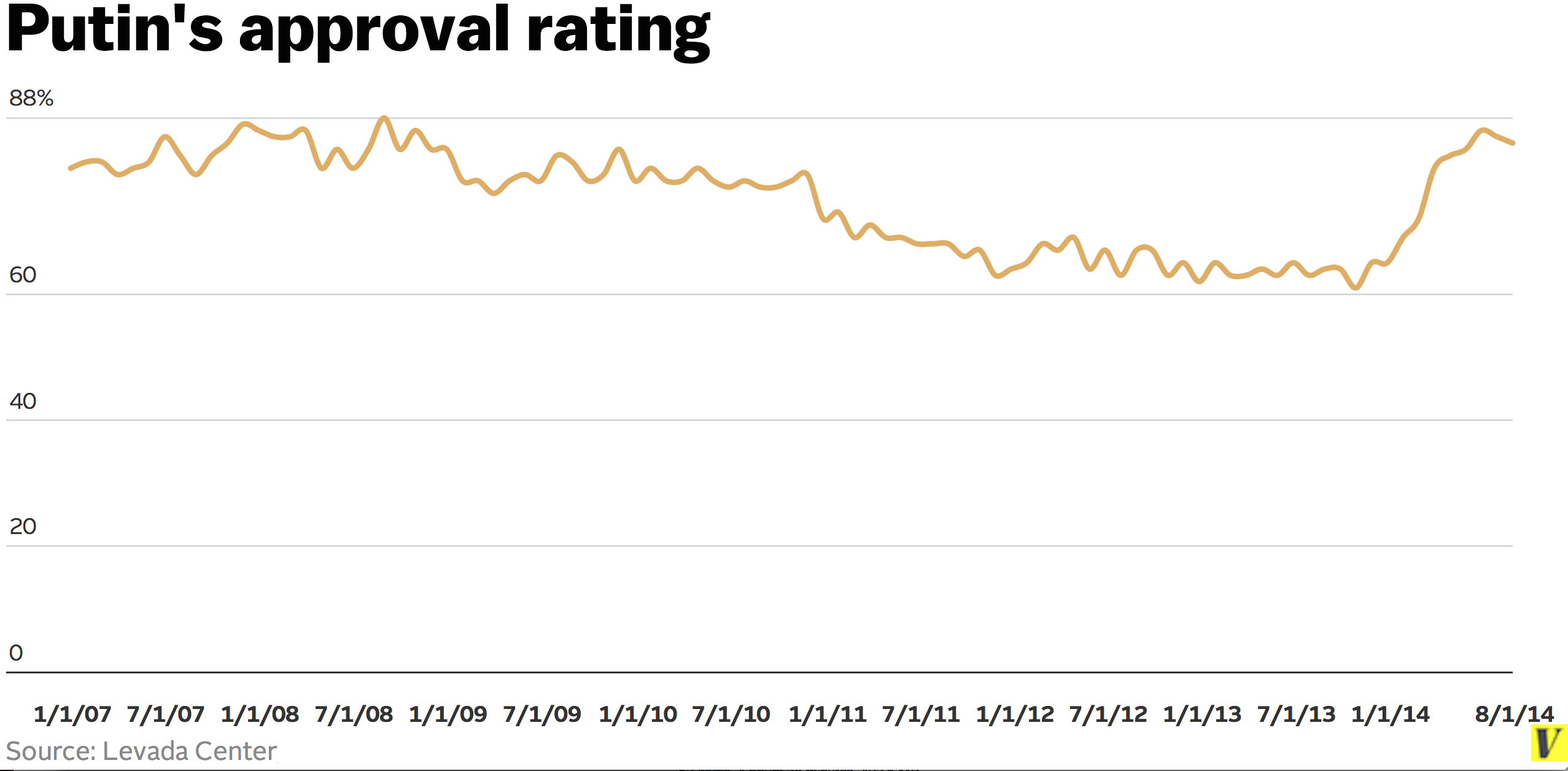
/cdn3.vox-cdn.com/uploads/chorus_asset/file/675892/P120103-1.0.png)
/cdn0.vox-cdn.com/uploads/chorus_asset/file/675944/140661760.0.jpg)
/cdn0.vox-cdn.com/uploads/chorus_asset/file/675724/454292040.0.jpg)
